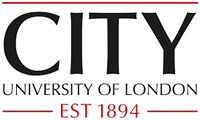Prof C McCourt, Dr L Rocca-Ihenacho
No more applications being accepted
Funded PhD Project (European/UK Students Only)
About the Project
The rates of caesarean section (CS) are rising, and alongside with it the importance of promoting Vaginal Birth After Caesarean Section (VBAC). Considering that the use of water in labour and birth facilitates the physiology of labour (Cluett and Burns, 2009), it could be hypothesized that hydrotherapy may have a beneficial effect on VBAC. However, a systematic review conducted by Branchini et al. (2016, for publication) highlighted a lack of research on this topic.
A survey conducted by the same research group (Branchini et al, 2015, for publication) showed that the offer of water as a pain relief option, in labour and at birth for VBAC mothers, varies widely between different NHS Trusts and the rationale behind the policies and guidelines adopted is often unclear.
The Birthplace in England study identified a higher use of hydrotherapy in midwifery units (MUs). This study identified that care in MUs is safe and optimal in terms of maternal and neonatal outcomes. Therefore, there is a strong case to investigate in depth the use of water in such units. In addition, there has been a recent trend to enable some women with previous CS to use water immersion in labour in MUs and obstetric units (OUs) but to date there is no clinical evidence on the outcomes.
Aim: to explore the use of hydrotherapy in labour in MU and OU settings in the UK and potential for a future RCT to test outcomes.
Objectives:
- To explore the expansion of care boundaries of AMUs and specifically the use of hydrotherapy for healthy women giving birth after a caesarean section who opt for AMU care;
- To explore how many MUs offer care to women having a VBAC in England and how many of these offer access to hydrotherapy;
- To map the offer of hydrotherapy to VBAC women in England in AMU and OU settings and collect data and information from local clinical audits.
- To investigate the views and experiences of midwives and obstetricians providing care to VBAC women who are choosing to use hydrotherapy
- To explore the potential to conduct a randomised controlled trial to assess clinical and psychological outcomes of use of hydrotherapy in women with previous CS, in low and higher-risk birth settings.
Methodology:
A mixed method approach will be required. Service provision will be mapped with a national survey and data gathered from local clinical audits will be analysed in order to provide a preliminary indication of clinical outcomes. Interviews and focus groups will be conducted with midwives working in AMUs and with obstetricians and midwives in OUs offering hydrotherapy to VBAC women.
The data analysis will be used to design a feasibility trial to investigate clinical outcomes for mothers and babies.
If you would like to have an informal discussion please contact [Email Address Removed]
School of Health Sciences
The School of Health Sciences is offering up to five full/part-time Doctoral Studentships to outstanding candidates. We are a leading provider of applied healthcare research and we offer PhD candidates an outstanding research environment: in REF 2014, 100% of our research environment was judged as world leading or internationally excellent and 100% of research impact was judged as world leading or internationally excellent. In the recent Postgraduate Research Experience Survey, 96% of PhD students responding rated the expertise and responsiveness of their supervisors as excellent. Successful applicants would join around 70 current PhD students in the School, providing a supportive environment of peers.
Eligibility
The studentships will be awarded on the basis of outstanding academic achievement and the potential to produce cutting edge-research.
• Applicants must hold at least a 2.1 honours degree or merit level Masters degree in a relevant subject (or international equivalent)
• Applicants whose first language is not English must have achieved at least 7.0 in IELTS or a recognised equivalent
• Applicants must not be currently registered as a doctoral student at City, University of London or any other academic institution
How to Apply
To apply for studentship funding:
• Complete an application form for a place on the PhD programme by clicking here where you will be asked to register before you can complete your application
• Upload your research proposal (four sides of A4 maximum including references) on one of the specific projects listed by supervisors or in any of the areas covered by the research centres following discussion and agreement with a potential supervisor.
Research centres: https://www.city.ac.uk/health/research
• Suggested structure of proposal:
1. Project description; Topic, motivation from the literature, Methods and potential impact
2. How does this fit with the work carried out in the School of Health Sciences?
3. Potential for this research lead to an important question or methodological innovation that might lead to 4* output
• Upload a short cover letter with your application requesting that your application be considered for studentship funding
• Submit your online application form and supporting documents by 30 November 2018. If you have any queries, please the doctoral degrees support officer, Tracy Rowson ([Email Address Removed]).
Funding Notes
• An annual bursary (£16,000 in 2018/19)
• All fees for PhD student registration paid for UK and EU students. Applications are welcome from overseas applicants but the applicant must make appropriate arrangements to cover the difference between the overseas and UK tuition fee
• Research costs up to £1000 over the three years

 Continue with Facebook
Continue with Facebook

